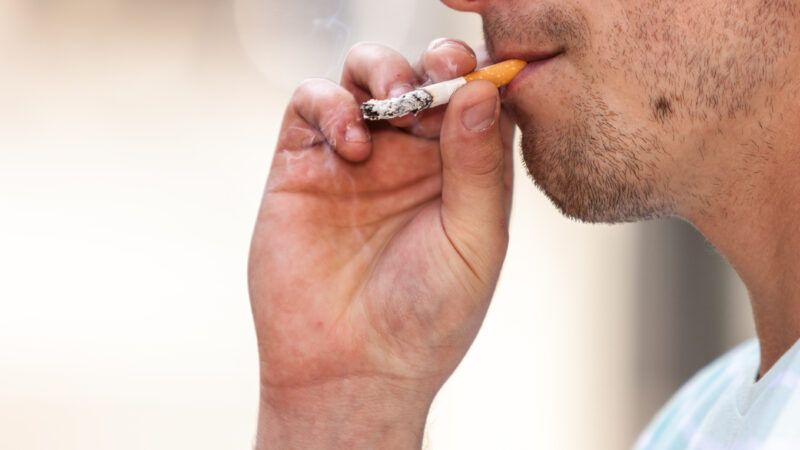New Zealand Bans Cigarette Sales to Anyone Born After 2008. Forever.
The country's strategy ignores the failures of prohibition.

On Tuesday, the New Zealand parliament passed a law banning anyone born after December 31, 2008, from ever buying cigarettes.
The law is designed to permanently stamp out tobacco usage in the country by aging out current smokers. In 2040, for instance, 31-year-olds will still be prohibited from buying cigarettes, cigars, and similar products. If the law is still on the books in 2122, no living person in New Zealand will be legally allowed to purchase combustible tobacco.
However, the policy will fuel a black market for the products and create new vectors for state violence against individuals.
The law was designed to dramatically reduce smoking rates in the country—which are already at a historic low, with only 8 percent of adults smoking daily. The law will also reduce the number of retailers permitted to sell combustible tobacco products, from 6,000 to 600, and it mandates a reduced nicotine level in tobacco products. The legislation will not ban the sale of tobacco vape products.
"This bill will create generational change, and it will leave a legacy of better health for our youth," New Zealand Associate Health Minister Ayesha Verrall said on Tuesday. "Thousands of people will live longer, healthier lives, and the health system will be $5 billion better off from not needing to treat the illnesses caused by smoking."
This new legislation, which makes New Zealand only the second country in the world to ban tobacco sales, opens a troubling new front in the drug war—one where the prohibition of certain substances is said to safeguard future generations without much consideration given to examples of how prohibition has created negative externalities that outweigh the benefits of deterrence.
Cannabis, for example, is illegal and the fourth most used substance in New Zealand after caffeine, alcohol, and tobacco. If there's a large black market for cannabis, it stands to reason that a more popular substance will have a larger black market. "By forcing buyers and suppliers into illicit markets, they create crime where none previously existed," wrote Jason Grier in Reason this May, discussing the effects of possible cigarette prohibition in the United States. "Even if possession of tobacco products remains legal, many small-time dealers likely will be drawn to the illicit trade. That will expose them to harassment by cops, potentially violent confrontations, arrest, and incarceration."
The law will soon be rubber-stamped by New Zealand's Governor General, the country's representative of the British Sovereign.


Show Comments (79)